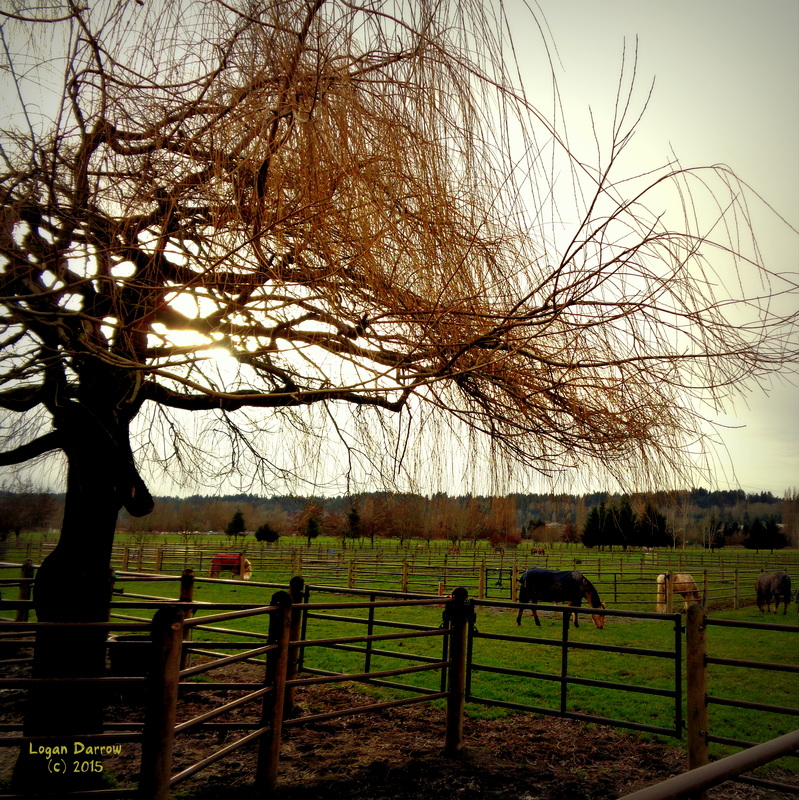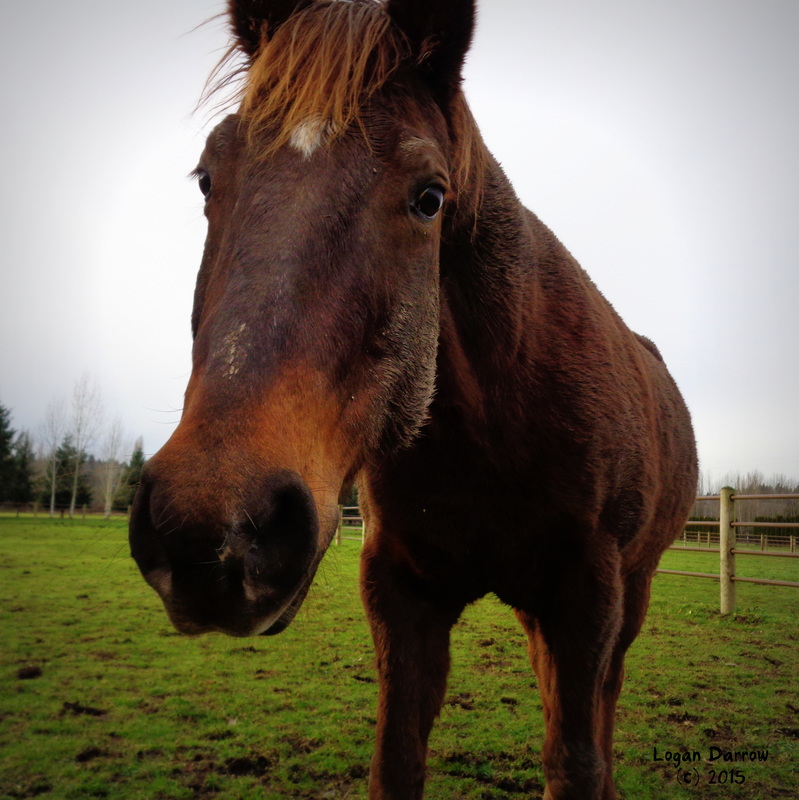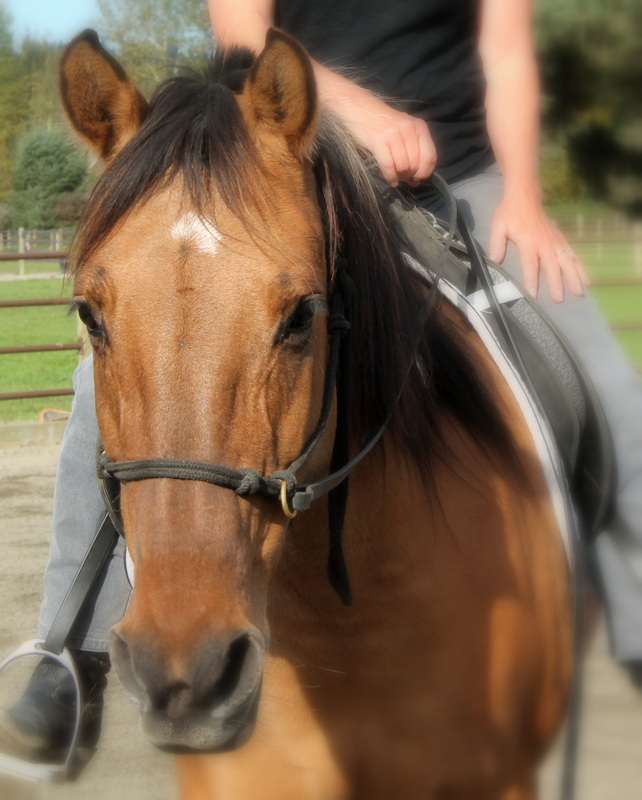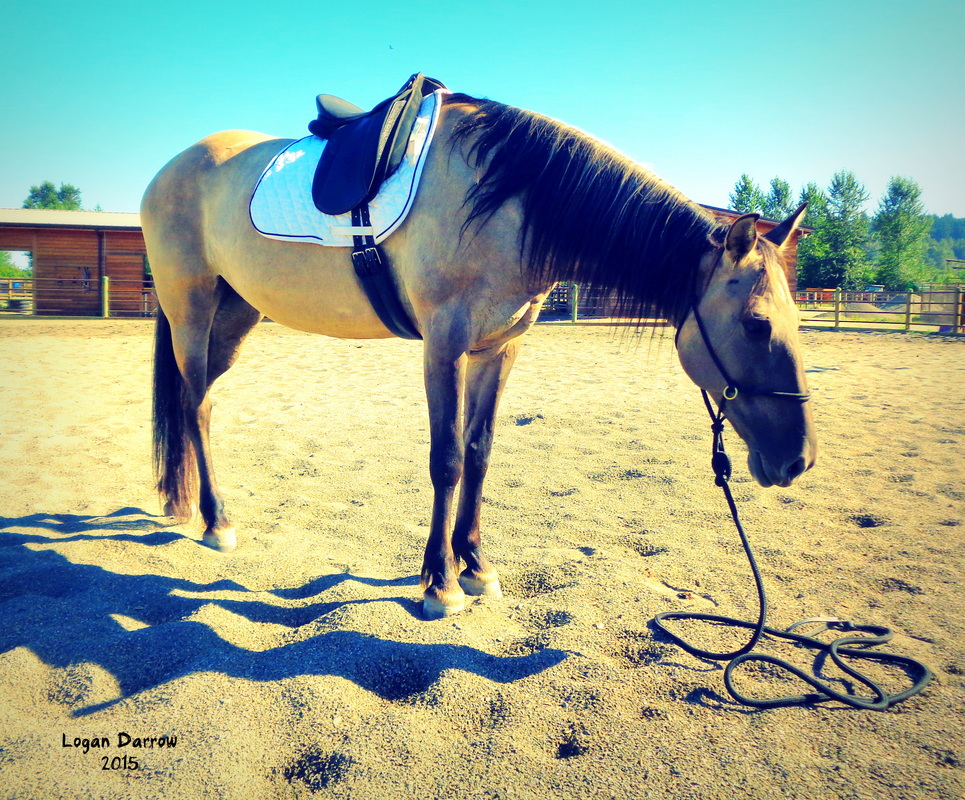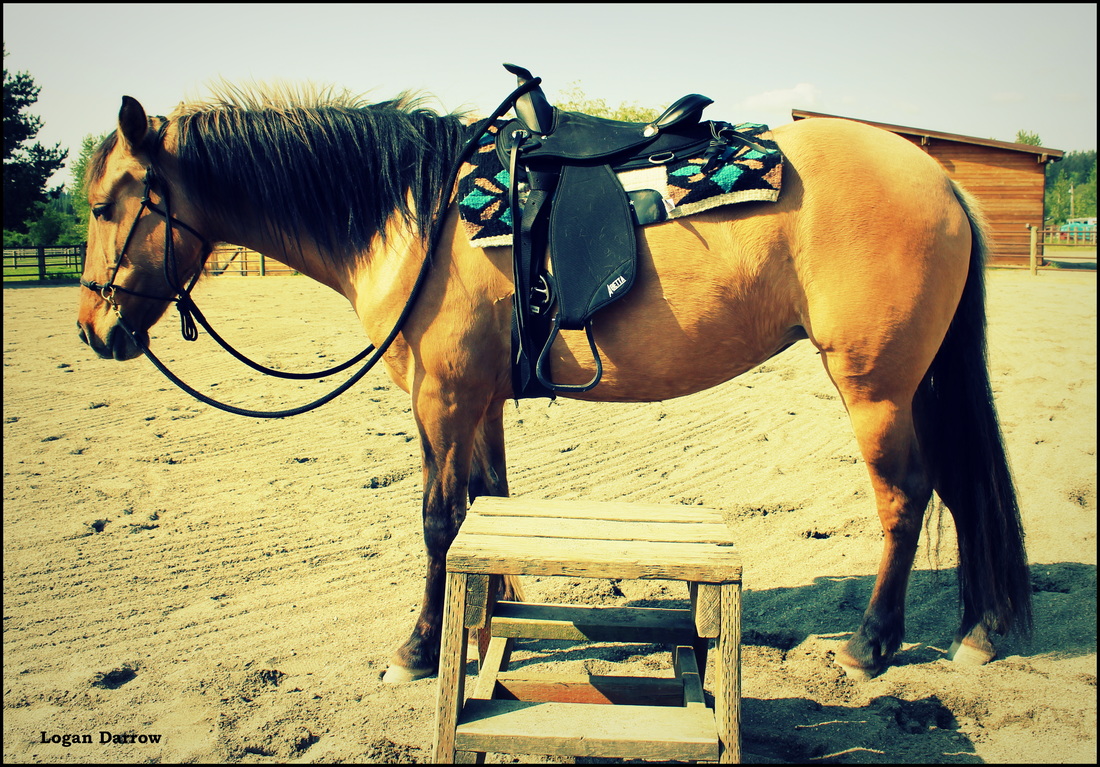Horse Time Should Not Be Chore Timechore CHôr/ noun
My mother was a skilled and talented gardener. Flowers of all varieties bloomed spring, summer and fall in the borders and beds around her house; a vegetable garden overflowing with tomatoes, lettuce, beans and herbs helped to grace the dinner table. She was also a gifted artist, and flowers were among her most favorite subjects; she painted big colorful bouquets of iris, poppies and hydrangea. You would think this opportunity to nourish such beauty would bring her joy, but frequently that wasn’t the case. The garden always needed tending; weeds needed to be pulled, shrubs needed to be pruned, mulch needed to be put down, vegetables needed to be harvested – it was stressful for her and made her discontented. There was no one telling her that she wasn’t doing it right, or that she needed to work harder at it, in fact she received many compliments, but still – it was a chore that somehow robbed her of something - it couldn’t be just fun for its own sake, there had to be a price to pay. For me, the saddest part of all is that this was self-inflicted: she wielded full control over her situation and she could have chosen to be joyful, but she didn’t. She CHOSE to make flower gardening, of all things - stressful. In our current century, in our First World lives, horses are not a necessity for most people. Unless we are old time farmers or cattle ranchers, horse ownership is a hobby or a sport. Like flower gardening, participation is 100% voluntary. So why do so many people get angst-ridden, frustrated and even angry about something they could stop doing at any time? One obvious reason is that horsemanship takes experience, skill and knowledge, learning is difficult, and riding as a physical activity takes training and practice just like any other sport. When we encounter issues and problems, we get understandably frustrated. But there is a difference between dealing with the temporary frustrations of overcoming obstacles along the way, and an overarching level of anxiety that isn’t relieved by progress. Here are some characteristics I’ve noticed with people who are constantly anxious or never satisfied with their horses and their horsemanship: 1. They don’t have faith in themselves. If we don’t have faith in ourselves, how can we expect our horses to trust us? If we are new to horse training or riding, it makes sense that we lack faith because we lack experience, and won’t possess tried and true solutions to problems that we will encounter that are new to us. So how do we get faith in ourselves? The same way we train our horses: step by step, establishing a foundation and building up, knowing that setbacks and mistakes are part of the process, and reaching out to others for help. Remember, nobody knows everything and never will. We are all on a continuum, it’s OK to be a beginner. 2. They are afraid of horses in general, and/or their horse in particular. This is a tough one; after all horses can weigh half a ton and just on that aspect alone they have the power to hurt us. Many of us have fallen off, been kicked or knocked over, and those experiences can leave us with lingering fear. So how do we conquer our perfectly logical fear of getting hurt? In a similar way to how we get faith in our other skills – step by step. In particular, finding a starting point where we DO feel safe is vital. That starting point might be just getting on a horse, sitting there for a few minutes, then getting off, then the next time sitting on for longer, or taking a few steps forward at the walk. We don't need to always be ACHIEVING. Sometimes we can just be chilling. And one thing that is very important: do NOT let others push you where you are not yet ready to go. This is your journey, and you get to choose your own pace. If your instinct says that your or your horse aren’t ready to do something, trust that instinct. This isn’t a race, it is your life with horses, and you get to decide how to run it. 3. They don’t have enough knowledge, or they have incorrect knowledge. This seems easy . . . don’t have enough knowledge, just go out and get some! But as we all know, in the age of the internet and YouTube, knowledge is both ubiquitous and suspect: how do we tell the good stuff from the bad, how do we know if what someone is promoting is going to help us or hurt us? We can start by doing our research. Ask people who are successful with horses how they got to be that way. Ask for recommendations for trainers and coaches. When you meet a professional, do their own horses behave in a way that is safe and responsive? Don't assume that because someone has won a lot of prizes and ribbons that they are necessarily a good teacher. Teaching in and of itself is a talent that requires more than just being proficient at something - that proficiency needs to be communicated in a way that others understand. Beware of those who are disrespectful of both horses and people. Professional trainers and coaches deserve to be paid for their time and advice, but remember that they work for you, not the other way around, and don’t allow yourself to get bullied about what is happening with your horse. 4. They anthropomorphize horses and have unrealistic expectations. I highly recommend reading “Evidence Based Horsemanship” by Martin Black and Dr Stephen Peters. (See link below to book review). We need to understand how the equine brain is different from the human brain, otherwise we will make assumptions that aren’t correct, and have expectations that won’t be met. Expectations are the root of frustration. To go back to gardening; if we planted flower seeds that we thought would grow to be three feet tall, but they only grew to one foot, we have a choice: either be disappointed, or enjoy the most beautiful one foot tall flowers we've ever seen. And don’t confuse expectations with goals: it is important to have goals to work towards with our horses; but since horses don’t have the ability to think in the abstract, goals are meaningless to them and we can’t expect them to think into the future the way we do. They are not out to sabotage us ~ they are just trying to get by in a world they can only experience through their own perspective, not ours. So if we have faith and knowledge, and put away our fears and expectations, what we are left with is a joy in the companionship of horses, right here, right now, no matter what is happening. Rather than being another source of frustration, our horses can be a refuge from life’s frustrations. If we come to them in peace and acceptance, they will mirror that back to us a hundredfold. For more on this subject, check out "Goals vs Process"
Read the book review on "Evidence Based Horsemanship" Have you experienced certain situations where you had a hard time dealing with frustration? Don't hesitate to share, comment or ask questions.
1 Comment
2/12/2017 04:41:22 pm
Lovely piece...agree, and love the way you break it all down. So true! Thank you!
Reply
Your comment will be posted after it is approved.
Leave a Reply. |
Your email address will be kept private.
Email me directly at
[email protected] 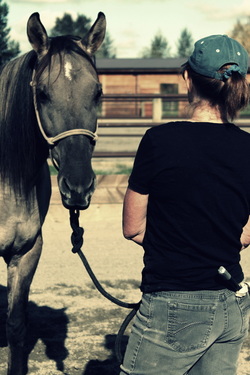
Archives
September 2018
Categories
All
|
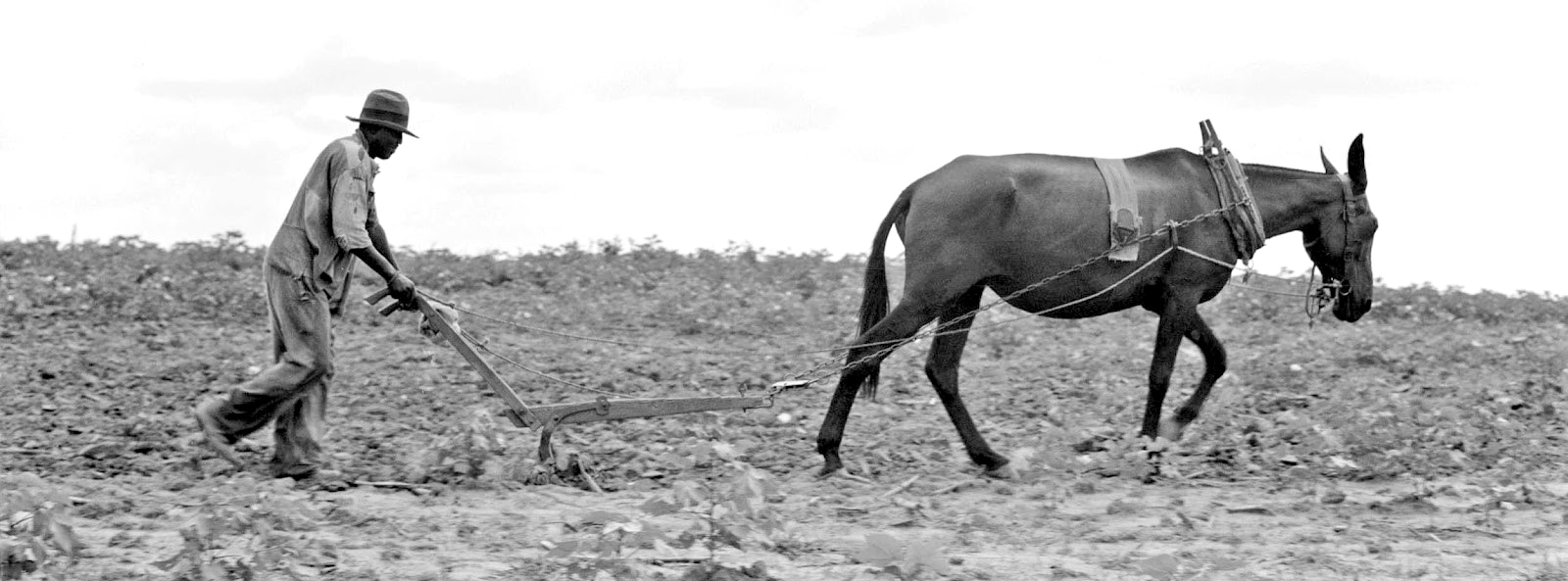
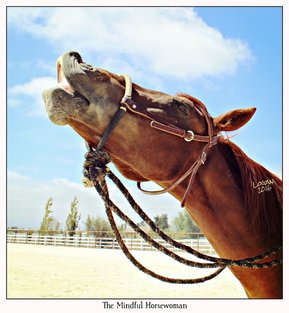
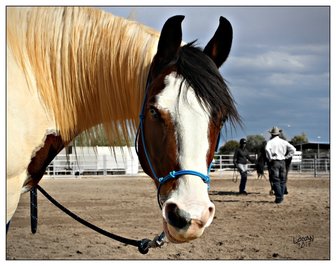
 RSS Feed
RSS Feed
